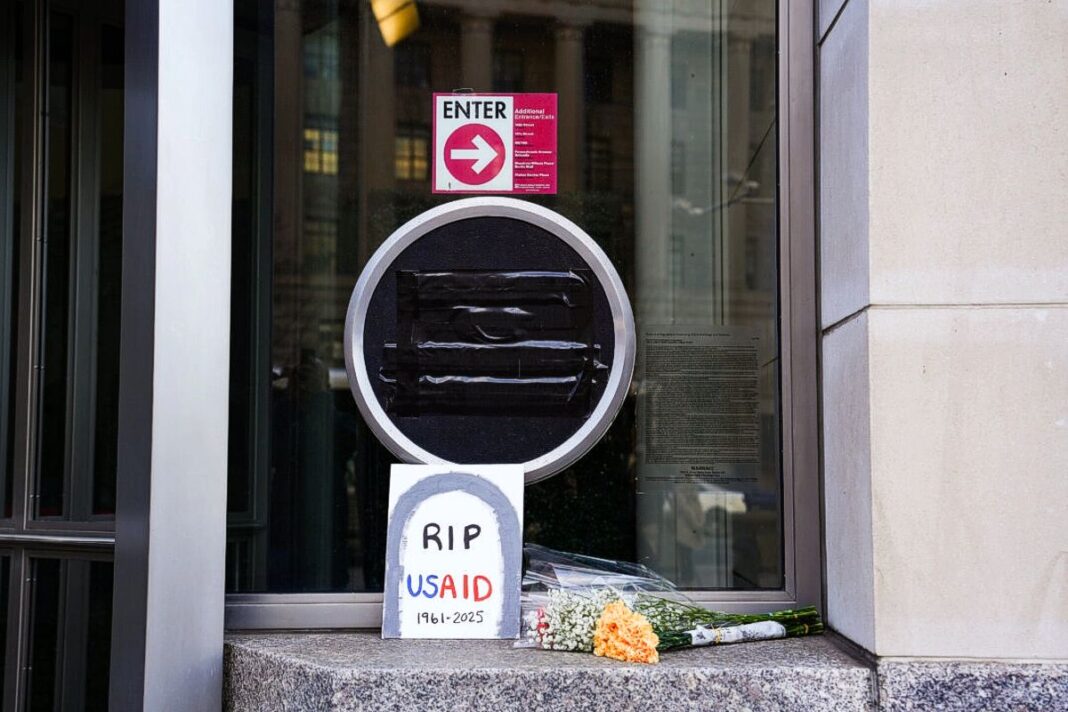Nearly all of the embattled agency’s direct-hire employees were scheduled for administrative leave at end of day Friday.
WASHINGTON—A federal judge said he will issue a temporary injunction halting mandatory administrative leave for nearly all employees of the U.S. Agency for International Aid (USAID).
Judge Carl Nichols ordered that USAID employees not be placed on leave at 11:59 p.m. Friday while legal challenges are pending.
Nichols stated that it was a “very limited” restraining order. He said he will formally issue the order this evening.
The petition for the temporary restraining order was filed at noon on Feb. 7 and the government had no time to submit a brief. The judge characterized the case as an employer–employee dispute but found that some of the plaintiffs’ arguments about irreparable harm were valid.
The order was handed down shortly after the agency’s Washington offices in the Ronald Reagan Building and International Trade Center were stripped of exterior signage.
President Donald Trump placed a freeze on all foreign aid on his first day in office, Jan. 20. The agency’s website was taken offline on Feb. 1, amid speculation on the future of the agency.
The following day, Elon Musk, appointed by Trump to lead the newly created Department of Government Efficiency, or DOGE, said Trump told him the federal agency should be closed.
Secretary of State Marco Rubio, appointed by Trump as acting director of the agency, seemed to indicate that reorganization rather than closure was a possibility.
“This is not about getting rid of foreign aid,” Rubio said in a televised interview on Fox, adding that no decision had yet been made on what activities might be better done through the State Department and which might remain under a reformed USAID.
Democrats have called Trump’s action “illegal.” Sen. Tim Kaine (D-Va.), joined by 36 Democratic colleagues, wrote to Rubio on Feb. 4 asking for clarification on the action.
“Every Administration has the right to review and adjust ongoing assistance programming,” the senators wrote, “However, attempting to arbitrarily turn off core functions of a critical U.S. national security agency, without Congressional consideration or any metric-based review and absent legal authority to do so, is unprecedented and deeply disturbing.”
By Lawrence Wilson and Stacy Robinson







